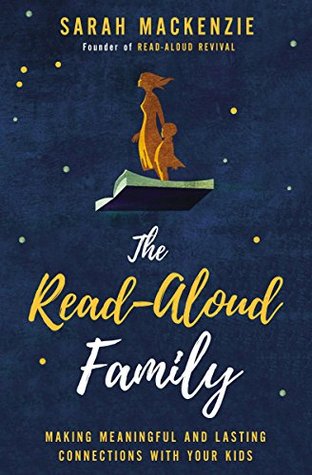More on this book
Community
Kindle Notes & Highlights
Read between
April 5 - April 25, 2023
We can offer our kids candy (the screens) on occasion, but it shouldn’t always be an option. Watermelon (a book) itself is a sweet delight that nourishes, and is so much easier to enjoy fully when we aren’t tempted by candy. By taking the candy off the table at certain times, we relieve our kids of the burden to choose. The freedom we give our kids to enjoy the watermelon comes when their choice to have candy is taken away.
We want our kids to read because they love to, not just because they can. We know they won’t read much in their free time unless they enjoy the act of reading itself, and so we hope they’ll develop a love of books out of sheer delight.
a good book leaves you more grateful to be alive. You close the final pages of the book a little breathless, a little more in awe of the great and glorious world.
A book that fails to leave the reader with hope has neglected its most important role: to help the reader see the world afresh.
A book should fill us with hope, even in the midst of bone-rattling thrill or heart-wrenching sorrow.
God gave each of us unique taste buds, and because of that we can enjoy rich and varied culinary experiences. I’m convinced that he gave us unique literary taste buds for the same reason.
However, it’s important to note that we won’t get far when we disparage something our child loves. In fact, we may actually do great damage, making a child wonder what is wrong with them because they like something their mother or father thinks is “garbage,” “twaddle,” or “dumb.” Instead, consider the idea that light books end up being like a small bowl of marshmallows on a table set with a grand assortment of more nourishing foods. They don’t take away from the grandness or richness of the greater feast. They are simply a small, delightful part of a wide and varied meal.
Your goal is for your child to love books and to experience a childhood rich with memories of books shared. Books that delight the whole family, leave them with a sense of hope and awe, and contain vivid imagery, rich language, and an interesting storyline will go a long way toward both.
Plant your seeds by reading aloud with your kids. Water those seeds by having open-ended conversations about them. But don’t demand that the seed blossom before its time. Your job is to plant and water and nurture. Let the book work its magic on the soul of your child in whatever way God desires.
A child is never too young for a read-aloud.
Prioritize your child’s love of literature, and you’ll find that down the road, you have children who can read for themselves, and—even better—who do read for themselves . . . even when no one is looking.
We want to fill our children’s ears with rich and varied vocabulary. You’ll find that kind of vocabulary in both picture books and novels, but not usually in the leveled books meant for beginning readers.
The most important thing to keep in mind when reading with 8–12s is simply that you must continue to read aloud, even as your child becomes a proficient reader himself.
Parents who read aloud with teens often describe it as a magical experience. You’ll likely find yourself enjoying the books you read to this age group every bit as much as your kids enjoy them. You’ll also find that connecting with your teens on days that are otherwise fraught with challenges is a lot easier when you’ve got a book to read together.


